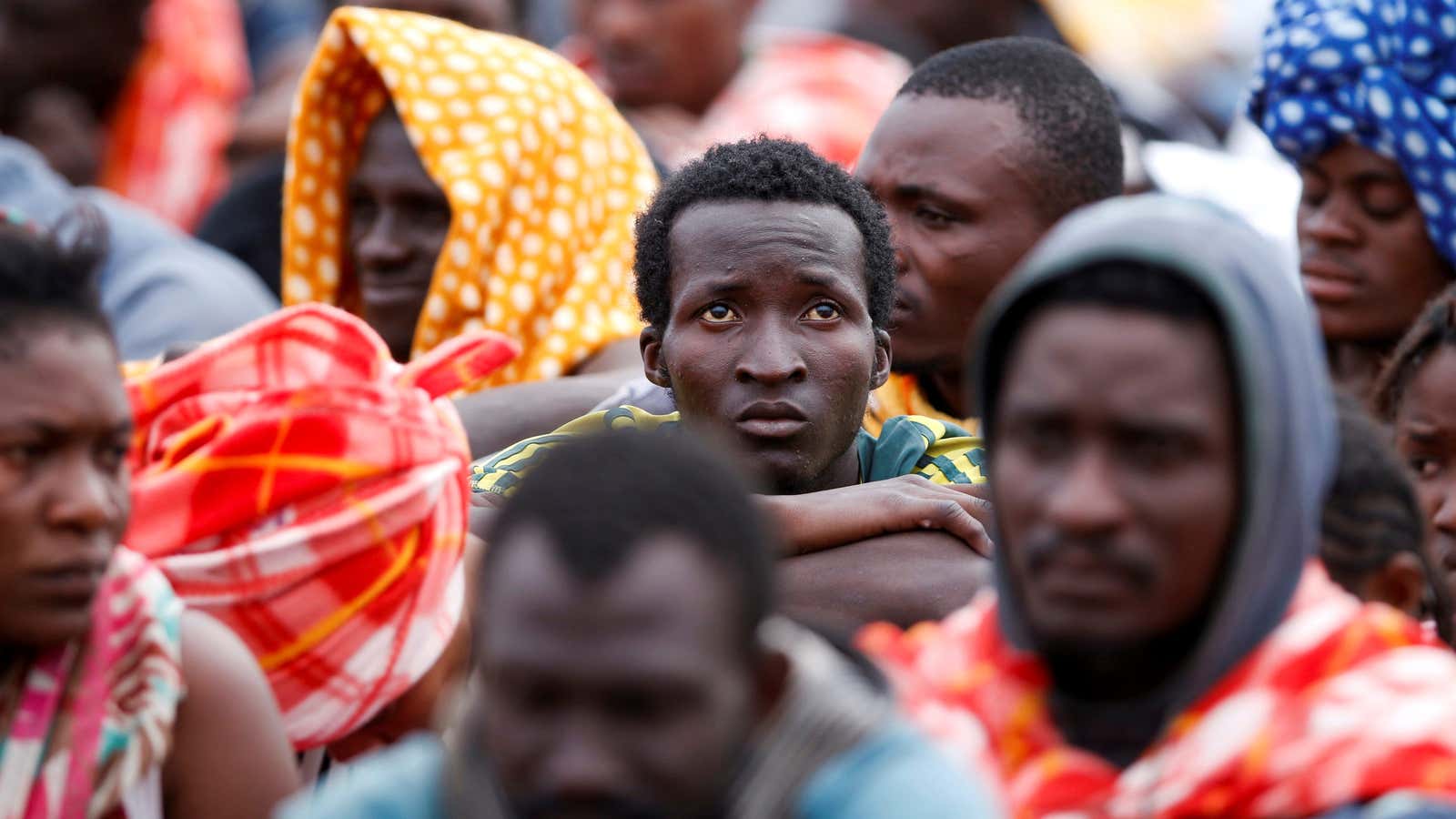2016 has proven to be a deadly year for migrants. 4,690 migrants are believed to have died so far this year while making the sea crossing to Europe, according to the United Nations High Commissioner for Refugees.
As Europe rapidly builds walls and fences to keep people out, migrants have shifted from using land borders to undertaking dangerous sea journeys. Now, with the crisis in Libya continuing to unravel, more and more migrants are risking their lives undertaking the most dangerous route to Europe—the Central Mediterranean route.
Hundreds of migrants squeeze onto tiny boats on this route, which typically embark from Libya and head to Italy. Since 2014, 17 of every 20 migrant deaths (pdf) in the Mediterranean occurred on the Central Mediterranean route. Earlier this month, an estimated 350 migrants are thought to have drowned attempting this crossing in six incidents over a single three-day period.
In 2014, the Central Mediterranean route was the most popular to reach Europe, with 170,100 migrants using this crossing. In 2015, that number fell to 153,842, as a record number of migrants reached Europe through the Eastern Mediterranean route instead, crossing the Aegean sea and landing in Greece. But this year, the Central Mediterranean route is back in favor: With a month to go, 2016 has already surpassed the record set two years ago, with 170,973 migrants opting for this crossing, as of Nov. 28.
Overall, far fewer migrants tried to reach Europe by sea in 2016 (347,709) than in 2015 (1,015078). This was largely due to a controversial agreement between the European Union (EU) and Turkey, under which Turkey will receive up to €6 billion ($6.8 billion) in aid and be granted renewed EU membership talks in return for taking migrants who come through Greece. While the deal has held back migrants, it remains unclear how long it will last.




